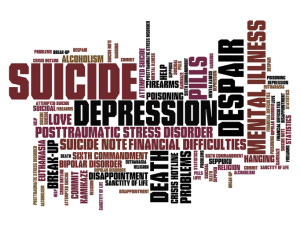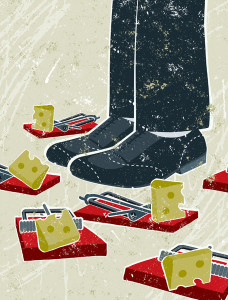We are all guilty of posing, filtering and posting on social media. But what are the true effects of Facebook, Instagram, Twitter and other social media sites on our mental health?
How many of us check out social media apps on a daily basis and leave feeling worse about ourselves and our lives? How many times do we look at old school friends or ex-partners and think how much more wonderful their lives are? The reality is, we all post our most rose-tinted view of ourselves and we constantly compare and compete with those around us. This surely has an effect on how we feel about ourselves and those around us.
According to a recent UK study, 62% of people surveyed reported feeling inadequate and jealous after visiting social media sites and many even reported symptoms associated with anxiety and depression. This has been linked to the idea that when we look on Facebook etc, we innately compare our life to these photos, and of course our regular day to day life will never compete to the fantasy world displayed on social media. How can a terrible day at work and a bad hair day, compare to a friend’s perfectly filtered photo in front of Central Park? The truth is it can’t compare. But it doesn’t mean that our life is terrible or that we aren’t successful.
Since the dawn of social media, our self esteem seems to be intrinsically linked to how many friends or followers we have, or how many ‘likes’ we get for our latest post. ‘Likes’ seem to have become a way for us to quantify how loveable, likeable or meaningful we are to other people, and if we don’t receive enough of these, then it therefore means we are un-loveable or invisible.
For many people who use Facebook or Instagram regularly, their self-worth is so reliant on their followers that face to face social interactions become less meaningful. It becomes more important to post about our lives than actually live it and spend the time talking to those around us. A study from the Harvard Business Review (2017) mentioned that the use of social media has produced a number of negative impacts, all of which have caused severe issues in our self-confidence and has dramatically reduced social interactions. The research stated that regular use of social media reduces pleasure in meaningful activities, self-esteem and face to face interactions with our loved ones and actually increases internet addiction, and sedentary behaviour. All of which have been linked to mental ill health.
So what to do about it?
-
- Sign out of Facebook, Instagram and other social media sites on all devices.
- This adds a barrier to you being able to access these sites instantaneously, and many people find the annoyance of having to sign in each time, outweighs the ‘pleasure’ we get from social media. We then naturally become less reliant on social media to meet our needs.
- Put your focus into face to face social interactions, or other activities that give back to you emotionally.
- This may give you a more meaningful pleasure and more often than not, give you deeper connections with those around you. You may even find that begin to notice more and enjoy the experiences fully.
- It is also important to remember that what is posted on social media isn’t real, it is all just fantasy. Don’t get sucked in!
- Stop torturing yourself by comparing your life with everyone else’s fantasy photos. Seek to improve your own life in a realistic manner. Choose to look at the positives and to celebrate your wins.
- Don’t use social media when you are feeling low, down or anxious.
- This encourages the feelings of rejection, low self-esteem and low mood. Instead put your focus into physical or social activities that give back to you.
Note: If you feel your use of the internet or social media is impacting your quality of life, or you experience low mood the majority of every day, please seek professional help.
 Suicide is often thought of as a taboo topic, we seem to shy away from talking about it as though it is a shameful act. Suicide is not shameful, or selfish, or irresponsible. For many it is the only way they see that will end the pain, suffering or loneliness that they experience.
Suicide is often thought of as a taboo topic, we seem to shy away from talking about it as though it is a shameful act. Suicide is not shameful, or selfish, or irresponsible. For many it is the only way they see that will end the pain, suffering or loneliness that they experience. Controlling or manipulative behaviour in relationships isn’t there from the beginning, or we wouldn’t stay. It can slowly and subtly develop over time, so much so that you barely notice at first, but soon you begin to notice how isolated and manipulated your life has become. Controlling behaviour is not specific to a particular socioeconomic status, gender, age, sexual orientation etc. It happens in all walks of life around New Zealand.
Controlling or manipulative behaviour in relationships isn’t there from the beginning, or we wouldn’t stay. It can slowly and subtly develop over time, so much so that you barely notice at first, but soon you begin to notice how isolated and manipulated your life has become. Controlling behaviour is not specific to a particular socioeconomic status, gender, age, sexual orientation etc. It happens in all walks of life around New Zealand. Therapy does not need to be limited to an office based environment. At Shore Therapy we are able to offer Skype sessions at no additional charge either in addition to your normal office based sessions, or we can have sessions exclusively via Skype.
Therapy does not need to be limited to an office based environment. At Shore Therapy we are able to offer Skype sessions at no additional charge either in addition to your normal office based sessions, or we can have sessions exclusively via Skype.